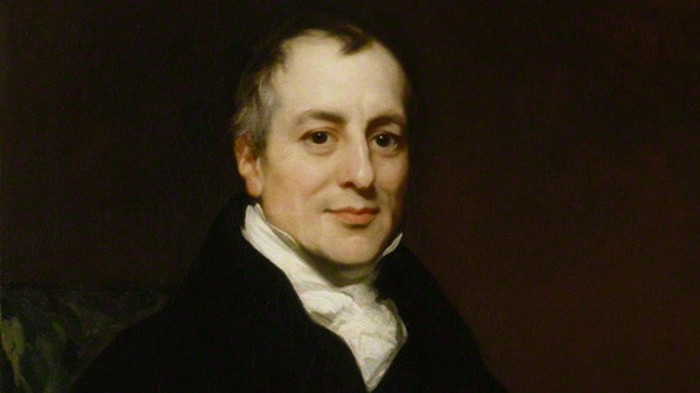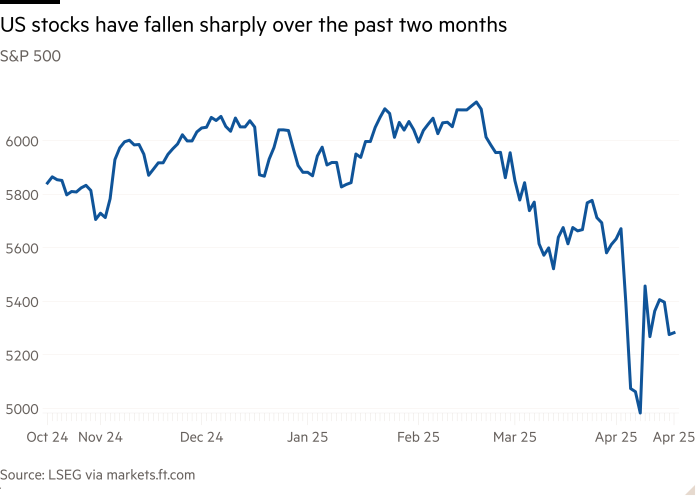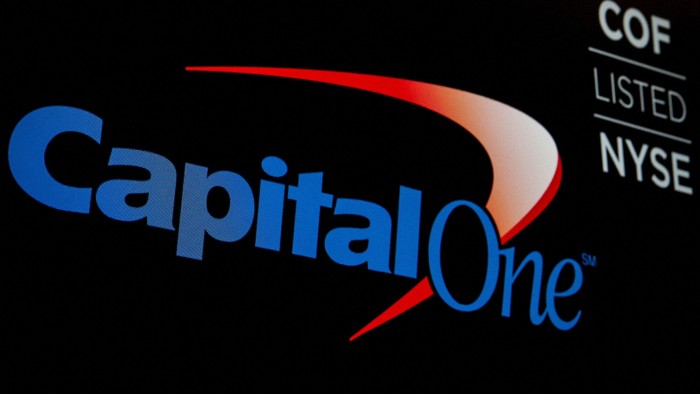Donald Trump’s gift to globalisation

Unlock the White House Watch newsletter for free
Your guide to what the 2024 US election means for Washington and the world
The plaque that honours David Ricardo in Bloomsbury seems almost designed to be walked past unnoticed. The nearby statue of his fellow free-trader Richard Cobden has become a popular latrine with the local bird population. And so a visual metaphor — about the soiled, neglected idea of trade — would have begun this column a few weeks ago.
Now? The Ricardian cause has no lack of friends. These include: financial markets, which have judged that Donald Trump’s tariffs will destroy wealth, or stop it being created; the Chinese embassy in Washington, which quotes Ronald Reagan’s case against protectionism back at his party; and, most tellingly, the left, which has chosen not to defend the tariffs as a reassertion of the state. In taking such a welcome stand on this issue, progressives may not realise quite how much is being admitted — the sanctity of price competition, for instance — but let’s not scare them off.
For the first time since the crash of 2008, globalisation has the high ground. It is those striving to undo it who are on the moral and intellectual defensive. Protectionism has turned out to be something of a fair-weather cause: popular as long as no one has to make a material sacrifice.
Granted, moral and intellectual victories are worth only so much if tariffs keep escalating in tit-for-tat reprisals between the US, China and the EU. Winning the argument is small consolation for losing the world. But real events tend to follow, after a lag, the tide of ideas. “Liberation day” was the result of a decade or more in which free-traders lost all confidence.
It matters, therefore, that old liberal verities are sayable again. Running a current account deficit is not failure. Workers are also consumers. Protectionism is a charter for lobbyists. (Look at the carve-outs for consumer electronics.) While no guarantee against war, trade can intertwine once-hostile states. (The Cobden statue was part-funded by Napoleon III.) An alternative timeline in which the US somehow smothered China’s industrial rise has to include higher retail prices: in fact, the possibility that the conquest of inflation in the 1990s never happened. Above all, don’t accord a spurious credibility to “limited” tariffs, such as the Joe Biden administration’s “small yard with a high fence”. No state gets to decide if the rest of the world retaliates.
This change in the intellectual atmosphere should affect how governments behave over time. So should the humbling of a second protectionist president in a row. After the electoral flop of Bidenomics, it is Trump’s turn to misread the working class as people pining to do the manual jobs of their forebears. It takes a college degree to believe this patronising foolery, which the comedian Dave Chappelle has countered better than most. (“I want to wear Nikes, not make them.”) What is a “worker” in 2025? A sales rep with a sideline as a gig driver, probably, whose main exposure to trade is the purchase of cheap products. While 80 per cent of Americans want more factories, 25 per cent aspire to work in them. Physical labour for thee, but not for me.
Will a third straight president make the protectionist error? It is slightly harder to imagine than it was at the start of the month. That is Trump’s unwitting gift to globalisation.
Trade should be a popular, even populist cause, as the Anti-Corn Law League was in the 1800s. The word “globalist” should be high praise. If world leaders aren’t ready to go quite that far, they should at least hold off on all the talk of a post-global era, which the well-meaning premiers of Canada and Singapore have fanned. Trade as a share of world output is stuck where it was on the eve of the crash. But it is higher than it was at the millennium, at which point it was twice as high as in 1970. It could be a plateau of trade that we are living through, or a transient dip, and from a historically high baseline. (What is true of trade is true of the other half of liberalism: political freedom. The number of democracies is down, but from a level that was scarcely imaginable in the 1970s.) Don’t crown protectionists with victories that haven’t been earned yet.
If globalisation has newly vocal friends, the relief should be mixed with a sense of waste. The time to speak up was years ago. Instead, rational people went along with tariffs because a Democratic president was levying them. It is still all too easy in bien pensant company to raise pantomime boos with talk of “neoliberalism”. Even the premise of that word is false. It just isn’t the case that Reagan, Thatcher and their heirs abandoned people to global market forces. In the US and UK, but also Australia, France and beyond, social spending was higher as a share of GDP in 2008, and now, than in 1980.
The lesson? Liberals tend to choose feeling good over thinking hard. In the culture wars, what allowed woke-ism to go as far as it did was not the zealots who were steeped in critical theory. These were few in number. It was the failure of those nearer the centre — who couldn’t abide being seen as big meanies — to stand up to them. Something similar has enabled protectionism to gain ground since the crash. Aching to be seen as good and chastened people, liberals have indulged all manner of economic nonsense. Even now, I suspect many are only banging the drum for trade because it is Trump on the opposing side. As a service to the cause, his is unintentional, but no less statue-worthy for that.






